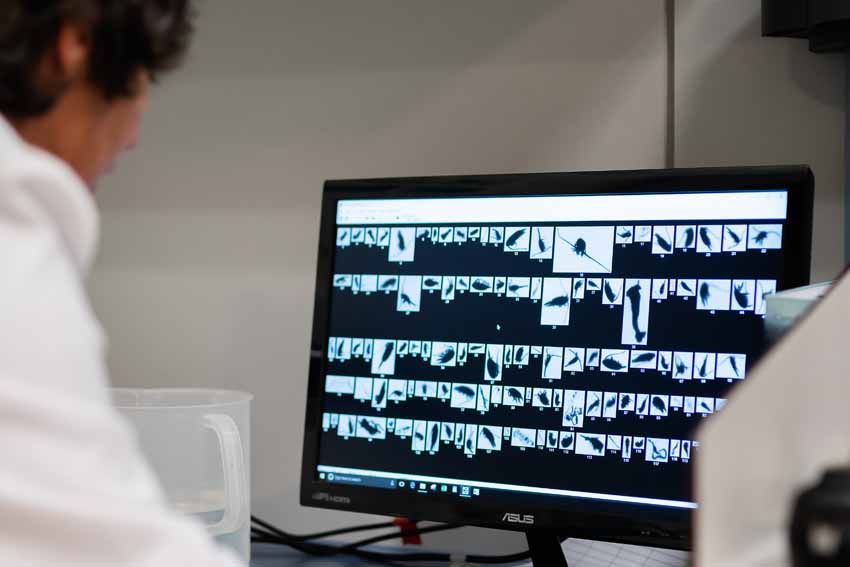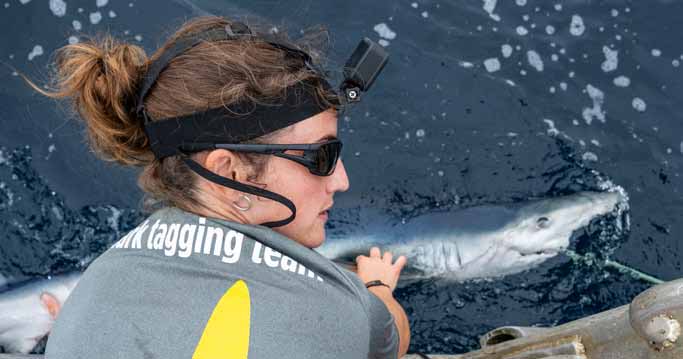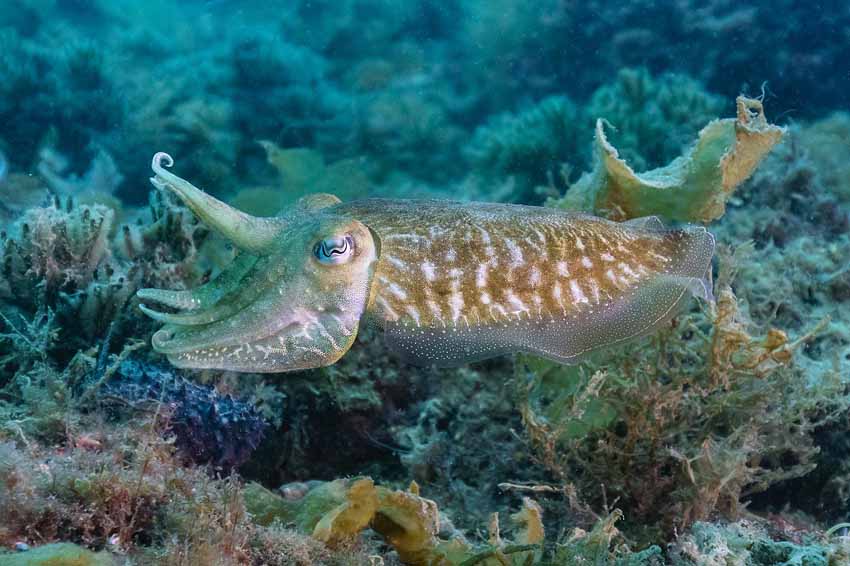AZTI’s work to achieve sustainable fish stocks that can feed a growing population
Últimas noticias
An LGTBIQ+ perspective on the animal kingdom
Una mirada LGTBIQ+ al reino animal
Circular Economy in Action: Valorisation of By-products through Projects like PRIMA NEWFEED
The ecosystem approach to fisheries management that helps to achieve sustainable fish stocks and thus ensure the sustainability of fisheries, as well as the conservation and restoration of ecosystems, are fundamental pillars in AZTI’s response to the challenges of the Common Fisheries Policy (CFP) and the Marine Strategy Framework Directive (MSFD).
The CFP, oriented towards the environmental, economic and social sustainability of fisheries, is intertwined with the MSFD, which focuses on the protection and good environmental status of the marine environment. The convergence of the two aims to preserve the marine ecosystem and ensure the equitable and sustainable exploitation of fishery resources.
In this context, marine protein from fishery resources becomes relevant, especially considering its lower environmental impact compared to terrestrial production. Balanced management of marine resources is a crucial challenge to preserve marine ecosystems and the marine environment.
However, fish production in Europe has been declining, proving insufficient to meet internal demand. The need to import from third countries poses challenges in terms of fisheries, environmental and social management.
Some of AZTI’s achievements in 2023 are as follows:
Índice de contenidos
- Progress in the management of artisanal fisheries in the Basque Country
- Innovation in biomass estimation, stock identification and delimitation
- Fisheries assessment and management advice
- Observation and collection of ecosystem-fisheries data
- Assessing and mitigating unwanted impacts of fishing activities
Progress in the management of artisanal fisheries in the Basque Country
At a time when the food production system contributes to both carbon emissions and the accelerated loss of biodiversity, preserving and increasing the natural capital of the seas and oceans is essential to ensure the continued provision of valuable ecosystem services. In this context, within the PLATICAS project, which is part of the National Knowledge Network promoted by the Spanish Ministry of Agriculture, Fisheries and Food, AZTI has improved the understanding of small-scale fisheries and their impact on climate change in the Basque Country. Working closely with fishermen, it has focused on the implementation of innovative systems and awareness-raising, identifying areas for improvement in training, digitalisation and generational change.
Small-scale fisheries are very complex, as they involve a succession of trades throughout the year, with a wide range of gear types, activities and impacts, and often share fishing grounds with other fishing and non-fishing uses. AZTI has coordinated the Interreg Atlantic Arc project CABFishMan (Conservation of Atlantic Biodiversity through support for innovative co-Management of small-scale Fisheries) in which different tools have been generated to expand existing knowledge of these fisheries and accurately estimate their environmental, economic and social impact.
Innovation in biomass estimation, stock identification and delimitation
The implementation of advanced technologies for estimating the biomass of fishery resources, such as those developed by AZTI, comes in response to the compelling need to improve the management and conservation of stocks. In a context where environmental pressures, climate change and human activities directly impact marine ecosystems, innovative approaches are essential. Using techniques such as environmental DNA analysis (traces of marine organisms such as fish suspended in the water column) and the close relative mark-recapture (CKMR) technique, AZTI is at the forefront of developing fishery-independent and therefore more accurate indices of abundance.
In addition, the application of population genetics makes it possible to delimit stocks, assign individuals to them and predict adaptations to climate change and human pressures. This approach has enabled, among other things, the study of bluefin tuna connectivity. The bluefin tuna genetic study, published in the journal Molecular Ecology and featured on its cover, is the most comprehensive to date, revealing unexpected connections between Mediterranean and Gulf of Mexico populations in a new spawning area off the northeast coast of the United States. These findings provide crucial information for fisheries management and conservation of the species, highlighting the importance of demographic mixing between reproductively isolated populations. On the other hand, population genetics has allowed the discovery and monitoring of hybridisation between white and black monkfish, with an impact on spawning stock biomass estimates and fleet economics.

Fisheries assessment and management advice
The traditional scientific campaigns led by AZTI not only maintain their relevance, but have also gained in value by incorporating, in recent years, an ecosystem approach and new indicators with the aim of studying how natural variability and climate change affect fishery resources. A clear example of this evolution are the JUVENA and BIOMAN campaigns, originally designed to estimate anchovy abundance, but which have incorporated measurements of their prey and predators. In addition, during the last few years, information on sardine has been collected and analysed, which has made it possible to estimate its abundance.
In 2023, the JUVENA and BIOMAN campaigns have confirmed the good state of the species in the Bay of Biscay. This is the result of the continued commitment of the sector, the Basque Government and the scientific community to the sustainable management of this species, which is crucial for the economy and ecosystem of the Basque Country.
AZTI is also leading a project funded by the European Union to study the behaviour of sharks in the Bay of Biscay, to prevent unwanted interactions with human activities. This initiative, in collaboration with the fishing sector, demonstrates AZTI’s commitment to the protection and sustainability of the marine ecosystem.
Another contribution of AZTI has been the development of a tool that facilitates the calculation and visual representation of the economic impact of various Total Allowable Catches (TACs) and quotas. This tool gives participants in negotiations the ability to anticipate and predictively assess the economic impact of their agreements.
In addition, AZTI has developed a series of sustainability indicators to guide the fishing sector in its management. Of particular note is ICCAT’s implementation of the Management Procedure for albacore tuna, which includes a Catch Control Rule, with the outstanding participation of AZTI’s tuna team. Prior to this innovative rule, stock assessments were carried out in the traditional manner, revealing that albacore tuna was slightly overfished and showed limited signs of recovery. The adoption of the Management Procedure for albacore tuna has marked a significant milestone. By 2024, its catch quota is expected to increase by 25%, reaching record highs, substantially benefiting the Basque fishing sector.
In this line, seeking to lead sustainability in the tuna sector, AZTI, as technical secretariat, has played a key role in the consolidation and promotion of the Bermeo Tuna World Capital Association. This project, in collaboration with various entities, has transformed Bermeo and the Urdaibai region, focusing on the sustainability of tuna fisheries. The TUNA FORUM, an international event, witnessed the presentation of the Universal Declaration for Tuna Sustainability and the signing of the Tuna Cities Alliance, consolidating the commitment of its partners to the global sustainability of fisheries.
AZTI has also played a leading role as a local partner in the ICES Annual Science Conference 2023, a scientific event promoted by the International Council for the Exploration of the Seas, aimed at drawing strategic lines for the future of the oceans through science. ICES acts as an advisory body to both the European Commission and the International Oceanographic Commission (IOC) and the FAO, issuing annual advice on the fishing opportunities of some 250 fish stocks and other marine resources, many of which are straddling or highly migratory. This important event, which took place at the Euskalduna Palace in Bilbao, brought together more than 800 attendees, highlighting the positioning of the Basque Country in marine sciences and addressing issues in the context of the blue and digital strategy, with an estimated total impact of 1.2 million euros in Bizkaia.
Observation and collection of ecosystem-fisheries data
The revolutionary application of deep learning and artificial vision techniques has completely transformed electronic monitoring by enabling the objective identification of catches in real time. In this context, AZTI, recognised as a benchmark in the observation of ecosystem-fishery data, has transferred automatic image recognition algorithms to fishing technology companies.

Assessing and mitigating unwanted impacts of fishing activities
AZTI leads projects aimed at assessing and mitigating the unwanted impact of fishing activity, collaborating at European level to develop more selective fishing gear, a crucial aspect for an effective use of marine resources in accordance with the principle of maximum sustainable yield.
In this sense, the implementation of Electronic Monitoring Systems (EMS) in the fishing fleet has marked a turning point in the knowledge of bycatch. These systems allow a significant and efficient increase in monitoring coverage, providing crucial data for a more sustainable management of fisheries.
In addition, the effectiveness of acoustic deterrent devices, known as “pingers”, in reducing cetacean bycatch in trawl fisheries is highlighted. These devices, which emit acoustic signals to keep cetaceans away, have proven to be highly effective, reducing the accidental capture of dolphins by trawlers by more than 90%, according to studies carried out by AZTI. The effectiveness of these devices not only represents a significant advance in the preservation of marine life, but also opens the door to their implementation in other fisheries, marking a milestone in responsible fishing.
In parallel, AZTI is working on the implementation of devices to reduce mortality when releasing vulnerable species and on the development of good practices on board tuna fishing vessels. This work is carried out in close collaboration with the tuna freezer fleet operating in the Atlantic, Indian and Pacific Oceans, testing pioneering and highly innovative devices.En paralelo, AZTI trabaja en la implantación de dispositivos para reducir la mortalidad al liberar especies vulnerables y en el desarrollo de buenas prácticas a bordo de barcos atuneros. Esta labor se realiza en estrecha colaboración con la flota atunera congeladora operando en el Atlántico, Indico y Pacífico, testando dispositivos pioneros y altamente innovadores.
Finalmente, en el proyecto CetAMBICion, realizado entre 2021 y 2023 en colaboración con la industria pesquera y centros de investigación de Francia, Portugal y España, hemos establecido las bases para la evaluación y el seguimiento coordinados de las poblaciones de cetáceos y de las capturas accidentales. Este proyecto ha permitido la adopción conjunta de medidas de mitigación de la captura accidental de cetáceos en el golfo de Bizkaia y la costa ibérica, destacando el compromiso de AZTI con la conservación de la biodiversidad marina y la pesca sostenible.
Finally, in the CetAMBICion project, carried out between 2021 and 2023 in collaboration with the fishing industry and research centres in France, Portugal and Spain, we have established the basis for the coordinated assessment and monitoring of cetacean populations and incidental catches. This project has enabled the joint adoption of cetacean bycatch mitigation measures in the Bay of Biscay and the Iberian coast, highlighting AZTI’s commitment to the conservation of marine biodiversity and sustainable fishing.







